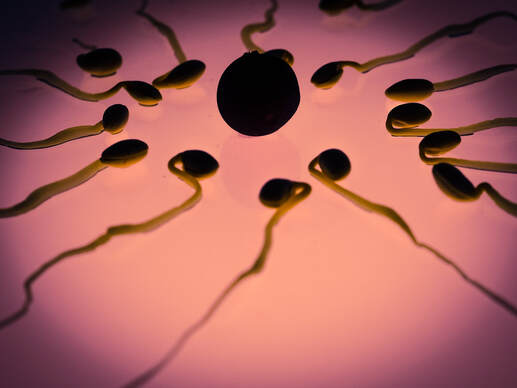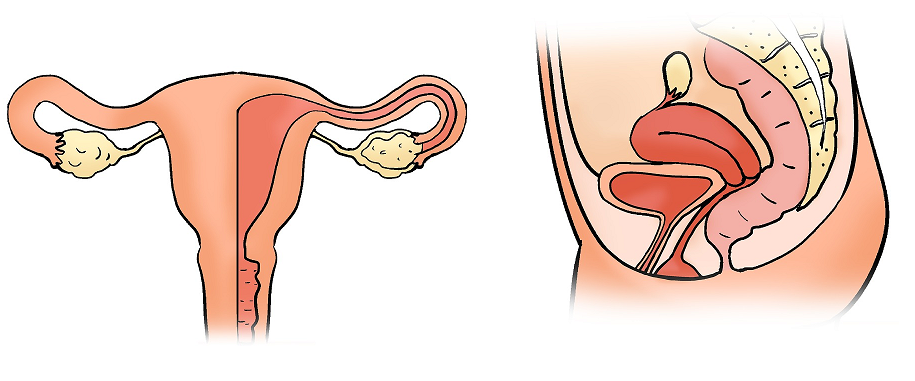 Family planning methods means methods that prevent pregnancy. These methods can be divided to natural and artificial methods. Difference between natural and artificial methods is simple: natural methods (like Creighton Model NFP method) doesn´t change natural sexual functions of the body or intervene the natural order of a sexual intercourse. Natural methods respect the body of a human being as a whole and doesn´t harm it. On the other hand artificial family planning methods modify natural sexual functions of the body (e.g. sterilization, hormonal contraceptives etc.) or intervene the natural order of a sexual intercourse (e.g. barrier methods like condoms). Hormonal contraception is for example one of the artificial methods and it causes lot´s of harm to the body and its functions like mental problems and increased risk of many cancers. The name contraception comes from the words contradicted conception. The plan is to prevent conception (union of sperm and ovum) because human life begins in conception. Unfortunately many contraceptives don´t prevent only conception but can also have abortion-causing actions after conception. About hormonal contraceptives All hormonal contraceptives (e.g. oral contraceptives, IUD, implants) affect woman´s endometrium in the womb and make it thinner and degenerated. It´s also well documented that none of hormonal contraceptives can prevent ovulation (release of a mature ovum) one hundred percent. So it can happen that conception takes place and human life begins despite of regular use of hormonal contraception. After one week of developing, embryo comes to a womb´s endometrium and tries to implant mucosa (implantation). But because of thin and degenerated endometrium (affected by hormonal contraceptive) embryo find it very hard or impossible to implant mucosa and this causes embryo loss. No one knows exactly how much embryo loss hormonal contraceptives are causing, but there are some review articles that suggest much bigger numbers than actual induced abortion numbers. So contraception can be a misleading name for many family planning methods because it doesn´t work just by preventing conceptions. Putting it other words: contraception can be an abortifacient. It´s true that usually primary action of the contraception is to prevent conception. But still if conception takes place the secondary action of the contraception comes out. This action doesn´t prevent life from beginning but destroys life that has already begun in conception. And that´s a huge moral problem of the contraception if we are fully pro-life from the moment of conception. It´s well documented that all hormonal contraceptives (oral contraceptives, IUD, implants, injections, contraceptive patch, vaginal ring etc.) can secondary work as an abortifacient. About condoms Usually barrier methods (like condoms) are thought to work just by preventing conceptions and never causing embryo loss. So condoms are thought to be truly contraceptives and never abortifacients. But never say never? First it´s good to notice that we can never prove that something can´t never happen. To prove that some hypothesis can´t never happen is out of evidence-based science. Instead of we can ask: is there any data that supports our hypothesis? If no, we can say that our hypothesis is highly unlikely. But if there is some studies that support our hypothesis, we can say that at least in theory our hypothesis can happen in real life. So my question is: is there data that give any reason to believe that condoms can sometimes cause to early abortions? Well, condoms work by preventing sperm releasing to woman´s reproductive system in a sexual intercourse. Sperm includes sperm cells and other ingredients. It´s clear that when there are no sperm cells available, there can´t be a conception. Life doesn´t begin. But it´s a common fact that in real life condoms are not a very good method to prevent pregnancy. Condoms can broke or sometimes pregnancy can begin even if condom stay intact. So conception can happen despite of using condoms correctly. Sperm cells are the mobile part of the sperm (you know they have a long tail) when other ingredients are immobile. If there is a microscopic fissure in the condom (or even if there isn´t) it can happen that mobile sperm cells reach woman´s reproductive system and other immobile ingredients are collected in the condom. But what are these other ingredients in the sperm? Nowadays we know that sperm has many functions in woman´s reproductive system. Man´s sperm is not just a carrier of the sperm cell. There are also other functions. One of these functions is to improve implantation by decreasing womb´s rejection to the embryo.* When knowing these other functions of the sperm we can carefully suggest next hypothesis: 1. It can happen that conception takes place despite of using condoms correctly. 2. However, implantation can be not so likely because of condom has collected sperm´s other ingredients (or at least some of them) that would have improve implantation. 3. Life can begin despite of using condoms but womb´s rejection can destroy embryo and cause early abortion. 4. This embryo loss is not necessarily absolutely natural because of condoms can have affect indirectly to womb´s rejection towards embryos. 5. By stopping using condoms we can let sperm natural functions in the womb improve it to receive embryos more friendly. 6. By stopping using condoms embryo can have a better chance to survive. Some thoughts If our hypothesis is true we can make some distinctions. When hormonal contraception affects directly to the endometrium and impairs embryo´s chance to implantation condoms action is indirect. As a whole both methods decreases embryo´s chance to survive. However ethically there is a difference between doing actively something and letting something to happen. Hormonal contraception affects actively to the endometrium when condoms affect passively. We can say hormonal contraception is contra-life and condoms don´t support life when speaking about implantation. So there is a difference between these two actions. When it´s always wrong to act contra-life (or against love) it can sometimes be morally okey to act the way that doesn´t support life (or act non-loving way). For example killing somebody in euthanasia or in abortion is always contra-life (and against love) but letting somebody die in car accident if there are ten victims and you can help only a couple of them is not contra-life. In this situation helping one of the victims is an act of love when letting another one die is an act of non-love but not against love. And non-loving action is not always wrong. It depends on circumstances. When speaking of condoms we can say they act non-lovingly towards possibly embryos. Condoms don´t affect directly to embryo loss by modifying endometrium but indirectly by preventing sperm´s functions in the endometrium. If there is a man outside of a boat and you don´t throw him a lifebelt you don´t kill this man directly but let him die indirectly. But still it´s of course wrong not to throw a lifebelt if you would have a chance. If we have a chance we have a responsibility to help. The same is with condoms, I think. If we know they can impair implantation of embryos, we have a responsibility to work for life and love. With this article I´m not going to say that using condoms is the same than making an abort. Neither I´m saying that my hypothesis is absolutely sure in real life. Instead of I would like to suggest carefully that condoms can be more complex when it comes to the mechanism that prevents pregnancy. *How much sperm helps embryo to survive? What´s a significance of sperm´s role for implantation? Some IVF studies have found that sperm can improve embryo´s chance to survive about 50 %. So we can say that sperm can have a significant role for embryo´s implantation. Look this.
0 Comments
Your comment will be posted after it is approved.
Leave a Reply. |

 RSS Feed
RSS Feed